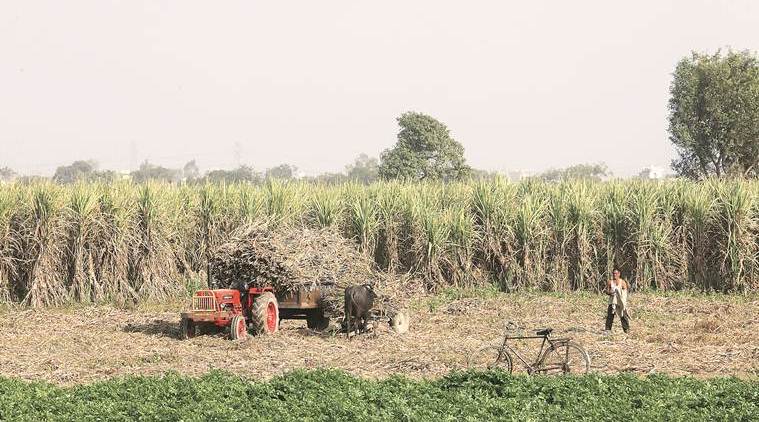
Forty-five-year-old Tara Chand, a resident of Bamiyal village on the Indo-Pak border, is more concerned about the unseasonal rain that has been pouring in Punjab for over a month now than any possibility of war between India and Pakistan. According to IMD, Punjab has received 100.1 mm rain in January and February against the normal of 49.4 mm.
“We are more concerned about this unseasonal rain and the damage it could cause to our crops than the possibility of war,” says Chand, adding they are fed up of moving to safe places every now and then because of flare-up between India and Pakistan.
Bamiyal is sensitive because it is located at the junction of Jammu and Kashmir and Punjab on one side and shares International Border with Pakistan. It was in the news when Pathankot terror attack took place in January 2016 because it was widely believed that the Pakistani terrorists had entered India through the Bamiyal sector.
“How long can you stay with relatives. Even they have started saying that you have come again. We will see what to do if anything happens. Every time there is an election, something like this happens. The last time we had to move to a safe place was in 2016 when the surgical strikes took place,” he says. As of now there has been no move to shift the villagers even though there is build up of forces along the border.
There is a distinct lack of concern about the chances of war breaking out throughout the border belt that The Sunday Express team visited along Pathankot, Gurdaspur and Amritsar districts. While there is a presence of heavy Army, the details of which cannot be revealed, there is also an increased presence of Punjab Police all along the border areas.
In Gurdaspur district, particularly the areas close to Dera Baba Nanak, there is an air of festivity due to the upcoming fair of Chola Sahib Gurdwara to be held in the town. All nearby villages along the border have special langar stalls set up on roads with devotees offering means to passers-by. The town of Dera Baba Nanak, itself, which is just next to the International Border is bustling with activities connected with the fair. “I don’t think there will be any war. This will all end and there will be peace. We are not at all worried about the prospects of a war,” says Nishan Singh, a lanky youth outside a gurdwara in the town.
In Ramdas sector, Manjit Singh and his nephew Paramjit Singh of Ghumrai village are busy working in their fields. The family owns about seven acres of land right next to a defensive ditch-cum-bandh on the border. “So what if there is war? We will deal with it when it happens. Right now you can see that the wheat crop will be greatly harmed if this rain does not stop. I am more concerned about this because I know all this war talk takes place during election time,” says Manjit.
River Ravi flows next to the Indo-Pak border in three districts of Punjab. And as it meanders across the border it forms conclaves of land, which are held by India and Pakistan across the river. While there are very few villages in such conclaves, these are highly guarded even in peace time due to their military worth.
Dariya Musa is one such village located at the bend of the Ravi river in Amritsar district. Bhajan Singh, a landless villager, says he has not heard much about any possible war. “Some of us were around during 1971 war too. This time, we have not been asked to evacuate and feel quite secure at present,” says Bhajan.
Pak restarts work on Kartarpur corridor
Pakistan has restarted the work on Kartarpur corridor on its side of the border after a brief suspension after the Balakot air strike on February 26.
“Earth movers and trucks had been moved back by Pakistan Army and there had also been some threatening gestures by the tan rangers personnel manning their watch towers nearby when they trained their sniper rifles at us,” said a BSF jawan at ‘darshan point’ of the Kartarpur Gurdwara near Dera Baba Nanak.
Several JCB machines can be seen working right up to the border and a corridor has been marked by Pakistan authorities using yellow flags. A large number of Sikh devotees were present for a glimpse of the gurdwara, which is roughly 4 km inside Pakistan and can be seen through binoculars. Praying fervently with eyes closed, they are sure that the corridor is a reality now and will come through by November regardless of the tension between the two countries right now.